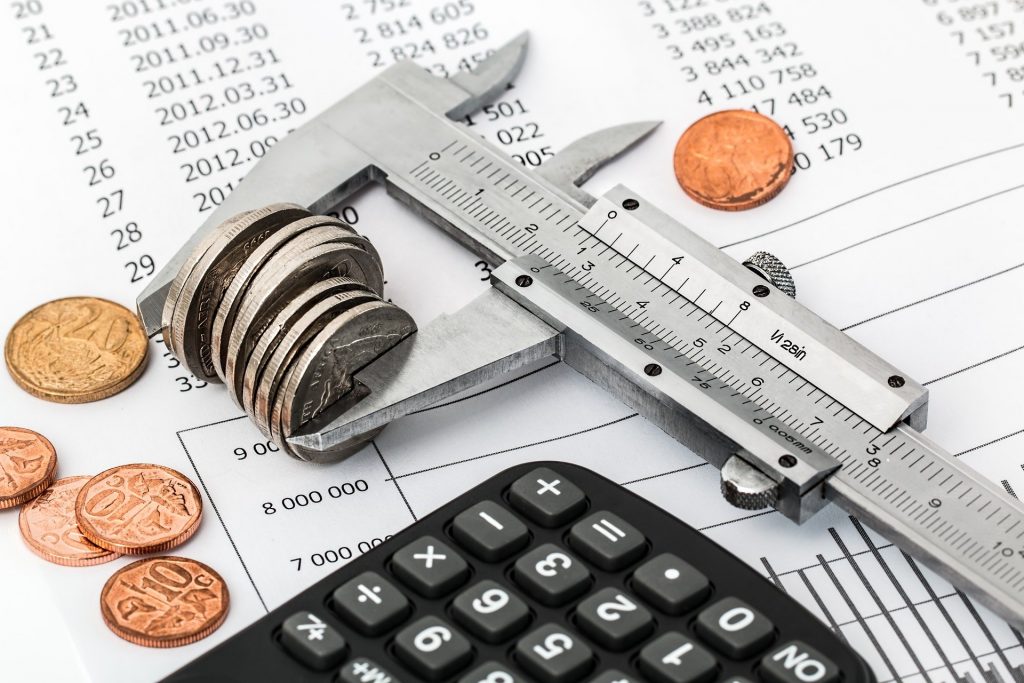Home Office — Business Use of Home

NOTE TO START: I prewrote a bunch of articles to get this blog started, including this article about Home Office use for tax purposes. With COVID-19 now hitting, everything is…well, it pretty much sucks.
Even worse, if you’re an employee suddenly stuck at home, the rules for home office don’t change. These expense will be non-deductible (unless Congress makes rule changes). If you’re self employed, though, you might have an argument. Read on for that.
And if you’re trying to get a Solo Entrepreneurship set up after the COVID-19 crisis has passed, congrats for making it through! Read on with renewed thankfulness for surviving that mess!
Rules for Home Office
When things are going really well for Indiepreneurs, there may be a time when you can finally get a dedicated office or studio outside of your home to run the business.
For most, though, work is going to be done in that cleared out space in the basement between the old cans of paint and the litter box.
As I’ve mentioned many times, you don’t want tax deductions to run your life. You need to make working from home work for you, screw the tax consequence.
That being said, it’s nice to get a work deduction if you can get it, and you can get it if you try.
Let me tell you how.
You Need a Dedicated Space
With very few exceptions that aren’t going to apply to most Indiepreneurs, your work space needs to be dedicated to…well, your work.
Are you making music in your bedroom like Billie Eilish or your living room like AJR? That’s absolutely amazing! But you’re likely SOL on the home office deduction unless you don’t use those rooms for anything else.

Now, there’s probably a little bit of wiggle room here. If I’m creating art on my computer in a dedicated office and take a few minutes a day browsing the internet, I’m gonna be okay. It’s where you have a space that’s clearly not meant exclusively and regularly for work that’ll get you in trouble.
Also, it’s a work SPACE, not necessarily a whole room. If you dedicate 20% of your bedroom to your work, and only do your work there, you’re not only following good work from home etiquette, you should be able to deduct something.
What won’t be allowed is something like a client I had, who claimed that of his 1,000 square foot Los Angeles condo, 600 square feet was dedicated to his business. When I explained the rules to him and asked how he jammed the rest of his life in the remaining 400 square feet, he switched to an accountant who asked fewer questions.
The IRS will ask the questions, though. Make sure you have good answers when they do.
No Other Office
If you you rent the penthouse suite at the top of the Four Seasons for an office, you can’t ALSO take the home office deduction.
Even renting some crap hole desk space on the wrong side of the tracks will make it so you can’t take the home office deduction.
You get one office space to deduct.
Like so many things in taxes, there’s exceptions. For example, if you have an art studio where you display your art work to the public, and you don’t have space there to do the financial administration, you could potentially deduct a home office for running bills and doing taxes.
In general, though, it’s one place only.
Figuring Out Your Deduction: Simplified Method
Alright, so you have your small corner of the house set aside just for work. What sort of money savings are we talking about?
The IRS has two ways to figure this out. The first is the Simplified Method. Which, amazingly, is actually quite simple to figure out.
All you need to do is multiply the square footage of your dedicated home office space by $5 a square foot. The resulting number is your deduction.
This method has limitations. You can only deduct up to 300 square feet. And, obviously, it’s only $5 a square foot.
If you have a bigger space, or if your home is expensive, this method isn’t for you.
The Simplified Method saves a lot of headaches, though. And it saves even more of a headache down the road when you go to sell the home (more on that in the Regular Method).
Being able to take up to $1,500 deduction without much work is pretty nice.
Figuring Out Your Deduction: Regular Method
So you’re a wanton for punishment? Or you hired someone to do your taxes for you and you’re curious how they’ll calculate your home office?
Then pull up Form 8829, my masochistic friend.
Got it? Alright, so let’s talk about what you need here.
First, figure out the square footage of your home (livable, finished space only), and figure out the square footage of your dedicated work space. Divide the office by the total square footage to get a percentage that drives the rest of the calculation.
The office expenses are broken out into two groups: Direct Expenses and Indirect Expenses.
Direct Expenses are amounts paid directly for the office space, like repairs or renovations in the office. There’s a hole in the office wall? Fixing it would be a direct expense. Need to replace the carpet with hardwood so your swivel chair can roam freely? That’s a direct expense. You get to deduct 100% of these.
The indirect expenses are the general household expenses that you allocate to the office based on that square footage percentage we figured out above. This would be things like mortgage, real estate taxes, rent, utilities, property insurance.
If I spend $150 a month on electricity, and my office takes up 4% of my house based on that square footage calculation, then I can deduct $6 a month in electricity for my home office.
Regular Method Fun: Depreciation
There’s one really big indirect expense: depreciation.
This one is a huge headache.
Your home depreciates, meaning it is worth less over time as it wears out. The IRS has decided that this comes out to the expense of the building (not the land, that doesn’t depreciate) run over 27.5 years.
If your home is just for personal use, you don’t have to calculate this amount.
If you have a home office, though, you have to calculate depreciation to figure out how much of it is related to the office. And you get to deduct that amount.
The bad news is that depreciation reduces your basis in the home. This means that when you sell the home later, you’ll have to realize more gain than you would if you didn’t depreciate it.
How this factors out in your tax return really depends. What it means for now, though, is another thing to track.
Or you could just take the Simplified Method and avoid that headache.






[…] Even though it’s tempting to simply pull out the Blue Yeti mic, hook it up to your iPad and go, you’ll probably want to make at least a little bit of an effort setting up a home recording studio. […]